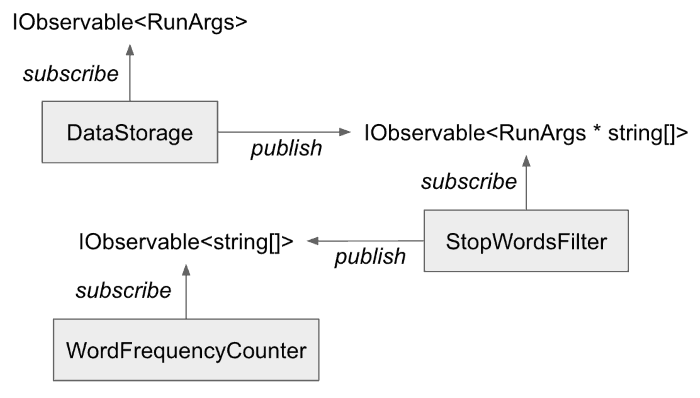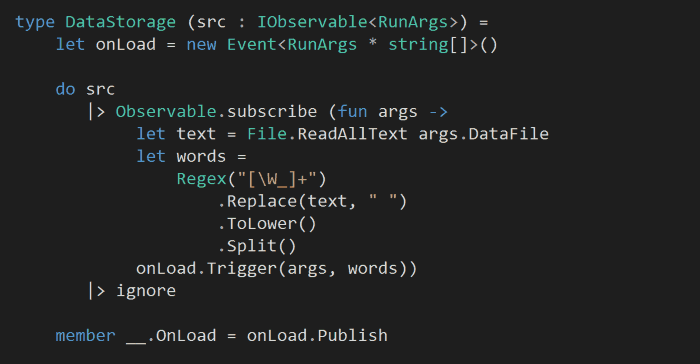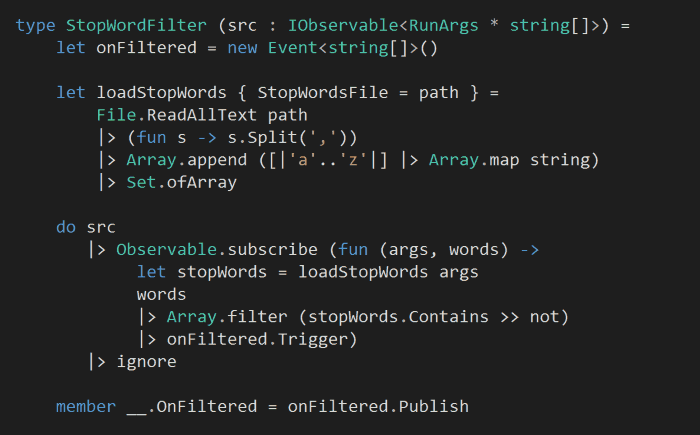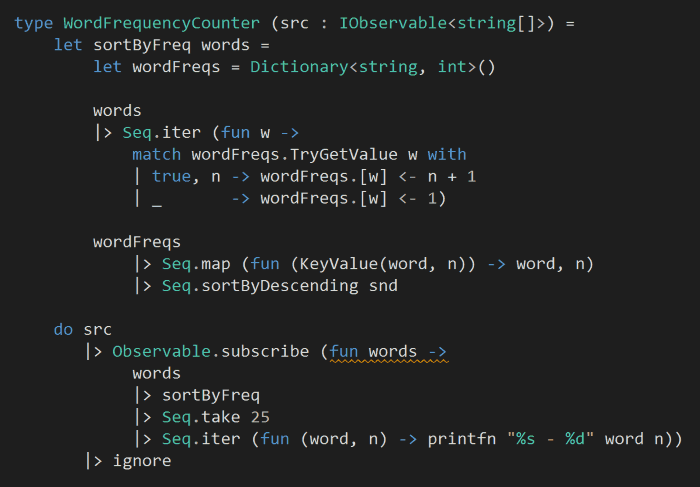
Yan Cui
I help clients go faster for less using serverless technologies.
NOTE : read the rest of the series, or check out the source code.
If you enjoy reading these exercises then please buy Crista’s book to support her work.
Following on from the last post, we will look at the Hollywood style today.
Style 14 – Hollywood
Constraints
- Larger problem is decomposed into entities using some form of abstraction
- The entities are never called on directly for actions
- The entities provide interfaces for other entities to be able to register callbacks
- At certain points of the computation, the entities call on the other entities that have registered for callbacks
I’m not overly fond of Crista’s Python interpretation of this style, so I decided to do something slightly different using F#’s built-in support for Observables. You could also use Rx via FSharp.Control.Reactive, though it seemed to be overkill for this particular problem.
Sticking with the same entities Crista defined in her example:
- DataStorage
- StopWordsFilter
- WordFrequencyCounter
in our F# version, each will subscribe to an upstream IObservable, does whatever it needs to do and provide the output also as an IObservable for downstream entities.

And upstream of all the entities is an attempt to run a term frequency analysis against a data file and a corresponding stop words file:

Our version of DataStorage would depend on an IObservable<RunArgs>. It’ll in turn expose an IObservable<RunArgs * string[]> as member so downstream entities can subscribe to and be notified when DataStorage is able to load the words from the specified data file.

Next, we’ll implement a StopWordsFilter type that will:
- subscribe to an IObservable<RunArgs * string[]>;
- on a new value, load the stop words and use them to filter the words from the data file;
- make the filtered words available to downstream entities via an IObservable<string[]>

Finally we have the WordFrequencyCounter, which takes an IObservable<string[]> and print the top 25 most frequent words:

To string everything together, we’ll create an instance of IObservable<RunArgs> via an F# Event (Event.Publish gives us an instance of IEvent<‘T> which inherits from IObservable<T>).
This IOservable will act as the upstream to DataStorage and to kick things off we just have to trigger a new event with an instance of RunArgs:

You can find the source code for this exercise here.
Whenever you’re ready, here are 3 ways I can help you:
- Production-Ready Serverless: Join 20+ AWS Heroes & Community Builders and 1000+ other students in levelling up your serverless game. This is your one-stop shop for quickly levelling up your serverless skills.
- I help clients launch product ideas, improve their development processes and upskill their teams. If you’d like to work together, then let’s get in touch.
- Join my community on Discord, ask questions, and join the discussion on all things AWS and Serverless.


Pingback: F# Weekly #4, 2016 | Sergey Tihon's Blog